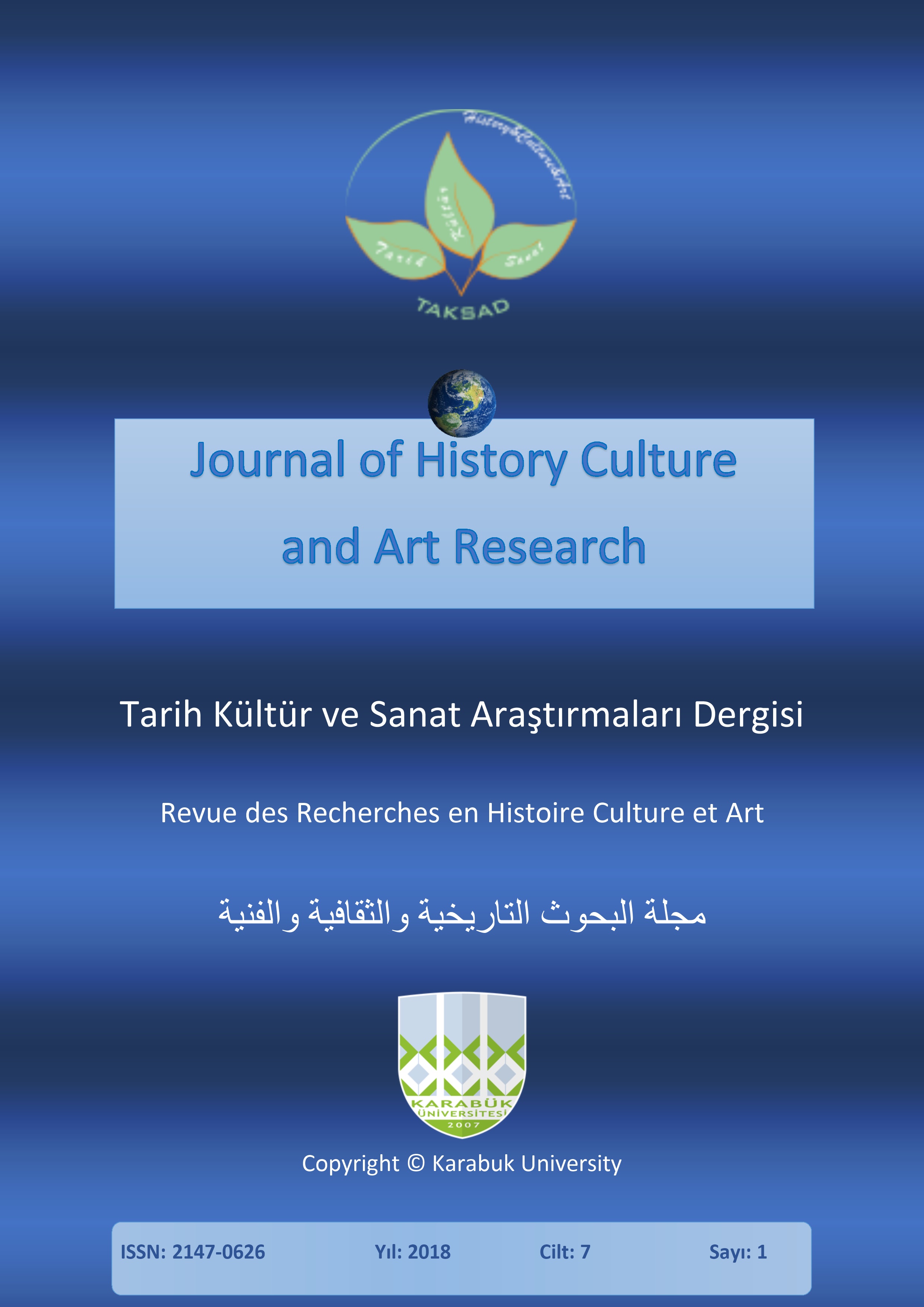Myth and Memory in Medieval Literary Awareness
DOI:
https://doi.org/10.7596/taksad.v7i1.1435Keywords:
Literature, Myth, Memory, Transcendences, Symbols, Mediaeval Literature.Abstract
Anne-Marie Thiesse testified that in letters, the echo of the “epic coming from the bottom of the centuries” is constantly heard. According to her, songs collected by Macpherson with the passion of the storyteller, are the substrates upon which the creation of literature transforms the great codes of different ethnicities into transcendental codes. This kind of search for the resurrection of epic ash in the letters could not carry the different ethnic and cultural feelings of the people, unless they were linked to the sign of their origin, i.e. by searching for the predecessors of a group who believes in some common values and cultivates them from generation to generation. These ancestors may be different: family members, a religious community, an ethnic community, or members of a religious community that unites the right and memories, or a cultural community, that unite some common symbols. In terms of the resurrection of “epic grace letter,” they constitute a social category distinct from other categories by the language, customs, myths, religion, etc. The myths in which they believe constitute the way how they treat themselves througout history. Our paper aims to discuss this relationship between the myth and literature and the memory for common values, which at some point appear as an essence in artistic works. The scope is to analyze the report that memory has with myths and the way how both affect literature. The paper tries to study a complex relationship between letters and myths, applying it to a pattern: The Medieval Literature.
References
Anderson, Benedict (1983). Imagined Communities: Reflectiones on the Origin and Spread of Nationalism. London: Verso Editions and New Left Books.
Bultman, Rudolf (1984). New Testament and Mythology and other basic Writings. Fortress Pres.
Curtius, Robert Ernst (1998). Europäische Literatur und Lateinisches Mittelalter (Frencke Verlag, Bern und München, Dritte Auflage, 1961). Cituar sipas përkthimit në gjuhën kroate: Ernst Robert Curtius, Evropska književnost i latinsko srednjovjekovlje, përkthyer nga Stjepan Markuš. Zagreb: Naprijed.
Gellner, Ernest (1987). Culture, Identity and Politics. Cambridge: Cambridge University Press.
Hobsbowm, Eric (1992). Nations and Nationalism since 1780: Programme, Myth, Reality, (2nd ed.). Cambridge: Cambridge University Press.
Horowitz, Donald (1982). Ethnic Groups in Conflict. Berkeley: University of California Press.
Levi-Strauss, Claude (2001). Myth and Meaning. London: Routledge.
Nora, Pierre (1989). Between Memory and History: Le Lieux de Mèmoire, translated in English by: Marc Roudebush. Representation, 26, spring.
Schwyzer, Philip (2004). Literature, Nationalism and Memory. Cambridge: Cambridge University Press.
Segal, Robert A. (2004). Myth - A very short introduction. Oxford: Oxford University Press.
Smith, Anthony D. (1999). Myths and Memories of the Nation. New York: Oxford University Press.
Smith, Anthony D. (1999). The Ethnic Origins of the Nations. New York: Blackwell Publishers LTD.
Thiesse, Anne-Marie (2004). La création des identities nationales – Europe XVIII-XX siècle (Éditions de Seuil, Mars 1999). Cituar sipas përkthimit në gjuhën shqipe: Anne-Marie Thiesse, Krijimi i identiteteve kombëtare – Europa e shekujve XVIII-XX, përkthyer nga: Etleva Shiroka. Pejë: Dukagjini.
Weber, Max (2004). Studies in sociology. Cited the verison in Albanian: Max Weber, Studime sociologjike, translated: Enida Rusi. Tiranë: Plejad.
Downloads
Published
How to Cite
Issue
Section
License
All papers licensed under Creative Commons 4.0 CC-BY.- Share — copy and redistribute the material in any medium or format
- Adapt — remix, transform, and build upon the material for any purpose, even commercially.
Under the following terms:
Attribution — You must give appropriate credit, provide a link to the license, and indicate if changes were made. You may do so in any reasonable manner, but not in any way that suggests the licensor endorses you or your use.
- No additional restrictions — You may not apply legal terms or technological measures that legally restrict others from doing anything the license permits.







